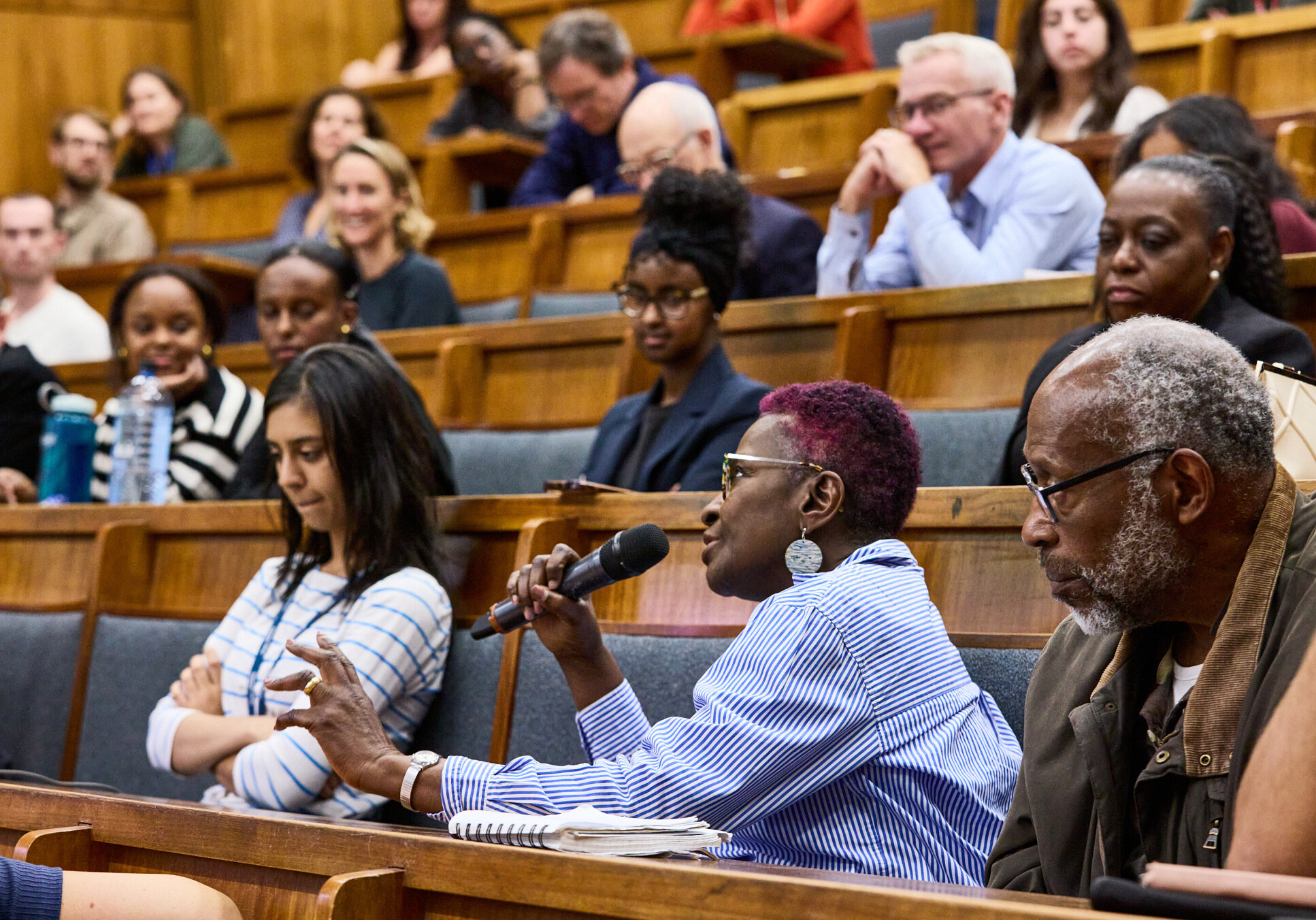Mayor of Freetown: Urban Resilience and Climate Adaptation

Imperial’s Global Development Hub Annual Lecture hosts Mayor of Freetown for urban resilience discussion.
Yvonne Aki-Sawyerr, Mayor of Freetown and Co-Chair of the C40 Cities Network, delivered the third Global Development Hub Annual Lecture at Imperial, focusing on the future of urban resilience and climate adaptation.
The Global Development Hub fosters equitable partnerships with collaborators in least developed and lower-income countries, enhancing research and innovation's impact on global development challenges.
Previous speakers at the annual lecture series include Amina Mohamed, Deputy Secretary-General of the UN, and Agnes Kalibata, President of AGRA, an African-led organisation dedicated to revolutionising the continent’s agricultural sector, and formerly UN Special Envoy on Food Systems.
This year’s lecture comes ahead of the launch of Imperial Global Ghana, a regional hub in Accra supporting research, education, and innovation across West Africa. Imperial Global Ghana will mark a significant step in Imperial’s expanding network of African partners from academia, government, industry and civil society, driving collaborative research and co-creation of solutions to key global challenges.
Climate resilience
Yvonne Aki-Sawyerr has been a transformative leader in Freetown, Sierra Leone, spearheading initiatives that have significantly impacted urban development, environmental stability and community resilience. Her innovative approach to governance and sustainable urban planning has gained international recognition, making her a leading voice in the global conversation on sustainable cities.
In the Hub’s Annual Lecture, Yvonne addressed the challenges that cities face in the 21st-century, particularly in developing countries. She highlighted the challenges of rapid urbanisation in Freetown, focusing on the need for sustainable planning, reforestation and addressing the impacts of climate change and rural-urban migration.

"We [Sierra Leone] are miniscule in terms of our contribution to greenhouse gas emissions…those who have contributed the least are those who are suffering the most from the consequences.
"Many people are moving to the city [Freetown] to survive...part of that is because of the failure of crops…climate change leads to more localised consequences."
She also discussed the opportunities for Freetown, in particular her Freetown the Treetown initiative. Having now planted over one million trees in the city since 2018, Yvonne said their next target is to plant an additional three million trees by 2028.
"We’re planting 60 to 70% of the trees as economic trees... fruit trees, medicinal trees, trees that communities want and will look after."

Yvonne was in conversation with Professor Frank Kelly, Battcock Chair in Community Health and Policy in the School of Public Health, and the discussion provided an opportunity to explore how cities can balance growth and sustainability and ensure a high quality of life for residents.
The event was opened by Professor Maggie Dallman, Vice President (International), who said: “Our recent launch of the university strategy, Science for Humanity, further emphasises our commitment to being a global university that’s driven by innovation and impact.
“International collaboration is in Imperial’s DNA and at the core of our research. We are interested in broadening disciplinary approaches, co-creating innovations and discoveries, and sharing learning about STEM impact on development challenges.”

C40 Cities Network
The Mayor of Freetown is co-Chair of the C40 Cities network, alongside the Mayor of London, Sadiq Khan. C40 is a global network of mayors of the world’s leading cities that are united in action to confront the climate crisis.
Following the lecture, Professor Michael Templeton, Co-Chair of the Global Development Hub and Professor of Public Health Engineering chaired a discussion with the Mayor of Freetown, representatives of C40 including Mark Watts, Executive Director, and a range of Imperial academics and partner organisations working across areas including environmental degradation, flood resilience, water and sanitation, air pollution and the impacts of extreme heat on health and wellbeing.
Imperial and Sierra Leone
Imperial has strong ties with Sierra Leone, including a remote PhD supervision scheme led by Professor Michael Templeton, helping to build engineering capacity in the country. Additionally, Imperial alumnus Alexandre Tourre, CEO of Easy Solar, has improved lives in Sierra Leone and across West Africa by providing affordable solar energy solutions through innovative pay-as-you-go technology.
Photography: Lucy Pope
Article text (excluding photos or graphics) © Imperial College London.
Photos and graphics subject to third party copyright used with permission or © Imperial College London.
Reporter
Joanna Wilson
Communications Division